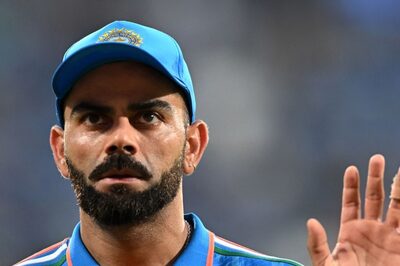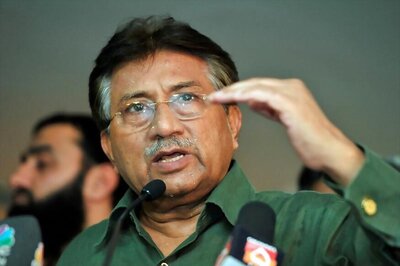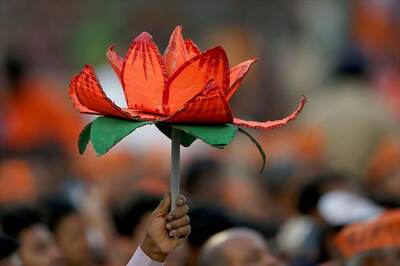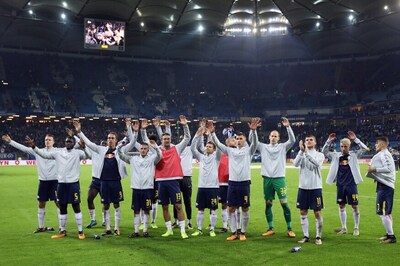
views
Shortly after presenting his Budget 2012-13, Finance Minister Pranab Mukherjee spoke to CNBC-TV18's Siddharth Zarabi about the constraints under which this exercise was taken.
In a very candid interview, Mukherjee spoke about the latest political development that happened too close to the big event, uncertain global scenario and impediments in the domestic economy.
Below is the edited transcript of his interview on CNBC-TV18.
CNBC-TV18: The overall climate that we have seen in the past few days - the difficult circumstances that you have faced on the economy side both domestically and internationally as well as the political climate has soured over the past few weeks and days - must have made your task very difficult.
Pranab Mukherjee: The latest political development has happened suddenly. By that time, the exercise was over. But the other issue, which you have raised, is important. The overall global situation and domestic situation are not very conducive.
While formulating my Budget proposals, I had to take into account three major areas. One, how to bring back the economy on higher growth trajectory was the primary consideration. Second, how to moderate the near double digit headline inflation, which doggedly pursued Indian economy for almost two years.
Third, the fiscal consolidation, which I believe is absolutely imperative to ensure higher and inclusive growth. We cannot allow fiscal profligacy. Therefore, these are the three major constraints which we had to keep in mind, while formulating the Budget proposals.
It was a difficult task. If you look into my entire exercise, you will find that I have given clear indications how I am going to come back on the path of our growth trajectory, how to make the fiscal consolidation and at the same time how to address the problems, particularly from the supply side constraints by removing those constraints either by higher allocations or by focusing at it. So, that is the overall environment in which we had to formulate.
I had Eurozone crises at the back of my mind. There is no solution feasible in near future. Recovery of USA has begun, but still it is halting and fragile. Same is the story with Japan. Therefore, one of the important aspects, which I have also emphasised, was the domestic demand driven growth strategy, how to enhance the purchasing power of the rural population which will generate adequate demand, which will act as a driver for the growth.
CNBC-TV18: Let us come to the point of fiscal consolidation. Clearly, last year's fiscal projection that you had made with based on certain assumptions, of which oil was certainly not in your control at all. That took away some sheen of the fiscal deficit numbers. You have now projected a 5.1per cent fiscal deficit for the next fiscal year, assuming a certain level of oil prices, around $115 per barrel. Is there a downside risk from crude oil supplies as far as the basic fiscal projection and math of the central government is concerned?
Pranab Mukherjee: So far the budgetary exercise is concerned, I have not addressed one of the major areas, which is causing a substantial erosion of resources by enhancing the subsidy. Therefore, the resources, which could have been deployed in other areas, are to be diverted there. It happened last year because my assumption was it would be USD 90 per barrel.
Now, I am pretty sure that it is not going to be less than $115 per barrel. On the one hand, I am working on the additional resource mobilisation. Second aspect on which I have emphasised from the expenditure control, I have bound myself by bringing it down to the level of 2 per cent of GDP, which is the current level of subsidies and to bring it down to 1.75 per cent of the GDP in the next three years and also to have a three-year fiscal target.
The fiscal statement, which I am committed to present to Parliament, there will be three years rolling target. That will provide us an opportunity to make a correction in the mid course, as and when needed. But at the same time, these issues are to be addressed, which I could not address. These issues cannot be left uncovered.
CNBC-TV18: On the subsidy control side, you have clearly made a very marked departure by saying that certain kind of subsidies will remain capped in some ways. That is the sense we got from your speech. Beyond that, you have also spoken about additional resource mobilisation. Again, on the oil subsidy front, do you anticipate a major problem because in the current year you saw oil subsidy going up by Rs 45,000 crore? What is the scenario likely to be?
Pranab Mukherjee: We shall have to address the issues. Collectively, we shall have to address these issues. Budgetary exercise is not the only way we can address it. But we shall have to address these issues. When and how? Of course that is a matter to be decided.
I am also going to address to the political establishment of the country because collectively we shall have to think of it. It is not the question of this party or that party because it is going to affect all. Therefore, at some point of time, we shall have to recognise this fact. Continuous efforts are needed. What type of action, what type of road map I am thinking, I am just not spelling it out, but shortly we shall have to do that.
CNBC-TV18: Let's come to additional resource mobilisation. The Budget has taken a very brave step by more or less returning to pre-2008 levels, both on excise and service tax, going with a hike and also a significant increase in certain items on customs duties. Your net tax mop-up, after everything else including the Rs 4,500 crore on direct taxes that you are giving away through the substantial giveaways salaried income taxpayer, is Rs 41,000 crore. Is this enough? Was there scope?
Pranab Mukherjee: I could have gone easily to 14 per cent because that was the pre-crises rate. Since I assumed this office in 2009, at a very critical juncture of our economy, international economy in the context of international financial crises, I have not only provided a stimulus package, but I have also brought down the taxes. I have allowed these reduced excise duty for almost three years-2009-10, 2010-11 and 2011-12.
CNBC-TV18: So this stimulus took quite significant time to unwind.
Pranab Mukherjee: I have not done fully because it was 14 per cent. I have pegged it up at 12 per cent.
So far service taxes are concerned, as I mentioned, this is the 18th year; 1992 the constitution was amended. It is contributing substantially to the GDP. So, there should be some correlation and this should get reflected. That is why administratively we have decided to have a negative list and some exemptions, list of the items that should be brought in.
Third objective, which I had before me, is that one day we shall have to convert to GST. Therefore, the rate should be aligned-excise duty, service tax. That is why I have kept in view areas where states would like to impose the taxes. While choosing the negative list and exempted category list, I had to keep all these factors in mind because this is not one year strategy. This has the future plan of converging into GST, having almost a common code.
I am going to set up a committee for excise duty and service tax, how we can bring them closer. GST and DTC are the two major taxation reforms. Direct tax code, I have now received the report. I have the opportunity of examining it and introducing it. GST, progress is there, some work is being done, but much more area has to be covered.
CNBC-TV18: You have gone out of your way to involve the states as far as the GST exercise is concerned. The instrumentality of the Empowered Committee is something where a BJP senior politician is heading that. At this stage, you mentioned one day, what do you think that one day could be for the advent of the regime because you have also today promised that the IT network, the crucial platform will come in place by August this year?
Pranab Mukherjee: Yes. That is the convergence point between the states and the centre. They are also using this GST network. They are fully convinced that there is a need. Even for the model legislation, we are working in close cooperation.
There are divergence of views in certain area and convergence of views in certain areas. But you shall have to recognise the fact that constitution amendment without the support of all parties, particularly the principle opposition party and some other parties, is not possible.
It requires not only two-third majority in both the houses, but also ratification by half of the states or major states. If they don't ratify, it would not be possible. Therefore, keeping that in view, we shall have to work for convergent approach and build up consensus, however painstaking it may be. That is why I am not putting any timeframe. This is a constant exercise that we shall have to carry on.




















Comments
0 comment